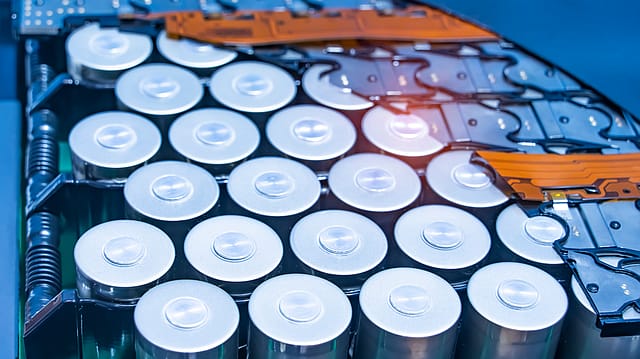Reliance, JSW, Amara Raja bid for 10 GWh ACC battery PLI scheme
ADVERTISEMENT

The Ministry of Heavy Industries has received bids from seven bidders including Reliance Industries, Amara Raja and JSW Neo Energy for Advanced Chemistry Cell (ACC) manufacturing under the Production Linked Incentives (PLI) scheme worth ₹3,620 crore.
The bids were received as part of re-bidding of the 10-gigawatt hour (GWh) of PLI incentives. The last date for receiving applications was April 22.
The PLI scheme received an overwhelming response from the industry as bids received are seven times the manufacturing capacity of 10 GWh to be awarded. Companies have submitted bids for a cumulative capacity of 70 GWh.
ACME Cleantech Solutions Private Limited, Amara Raja Advanced Cell Technologies Private Limited, Anvi Power Industries Private Limited, JSW Neo Energy Limited, Reliance Industries Limited, Lucas TVS Limited, and Waaree Energies Limited have submitted the bids.
The government approved the PLI scheme for manufacturing of Advanced Chemistry Cell (ACC) in May 2021 in an effort to boost domestic manufacturing of battery cells. The move was aimed at bringing down battery prices, which will ultimately reduce costs of electric vehicles.
Under the scheme, companies will receive incentives worth ₹18,100 crore for ACC manufacturing capacity of 50 GWh.
The first round of the ACC PLI bidding concluded in March 2022, and three beneficiary firms were allocated a total capacity of 30 GWh. The three selected bidders — Reliance New Energy, Ola Electric Mobility and Rajesh Exports — signed agreements under the PLI scheme for Advanced Chemistry Cell (ACC) battery storage in 2022.
Reacting to the development, shares of Amara Raja rose 15% to hit a 52-week high of ₹1,199.35 apiece on the BSE.
Shares of lithium-ion battery maker Waaree Technologies rose 5% to ₹1,994 on the BSE.
Battery cells are currently not manufactured in India, and thus most original equipment manufacturers (OEMs) rely on imports. Manufacturing operations in India are limited to the assembly of battery packs.
To achieve mass-scale penetration of EVs and a competitive cost structure, India will need to create its own ecosystem for developing battery cells locally, says Shamsher Dewan, senior vice president and group head – Corporate Ratings, ICRA.
Dewan, however, says multiple challenges exist for the establishment of a cell manufacturing ecosystem, the primary ones being technological complexity, high capital intensity, and raw material availability. “The ability of battery manufacturers to enter into agreements/alliances with players across the value chain to mitigate these risks, coupled with the creation of a robust framework for recycling, would remain key,” says Dewan.
In January, the government extended the ₹25,983-crore Production Linked Incentive (PLI) scheme for automobile and auto components by one year. Under the amended scheme, the incentives will be applicable for five consecutive financial years, starting from the financial year 2023-24.